We use cookies to ensure that we give you the best experience on our website. If you continue to use this site we will assume that you are happy with it
Background Check: Massachusetts (MA) State Database Search Guide (CORI)
 Written by Background Check Repair
Written by Background Check Repair
Background Checks | May 8, 2024
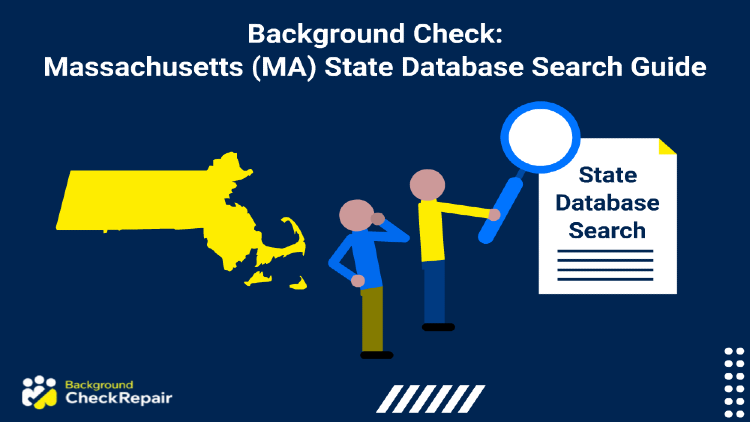
Table of Contents
When undergoing a background check, Massachusetts (MA) offers detailed processes and methods for agencies, businesses, and individuals. All information in the state’s database is known as the Criminal Offender Record Information (CORI). It helps simplify the Massachusetts background check policy and makes performing searches easy and fast.
However, some several different tools and databases can be utilized to search criminal records and find public information for a background check in MA. This comprehensive guide outlines how to do it.
How To Find Massachusetts Criminal Records Using CORI
There are a number of reasons that it may be necessary to search if a person has a criminal record in the state of Massachusetts. Luckily, a simple name-based search is both easy to perform and can help find useful information regarding the criminal record of an individual.
Although a simple name-based criminal background check isn’t a good substitute for running a more thorough background check, it presents a good starting point for businesses performing a Massachusetts background check for employment.
Different Types of Criminal Record Checks
In the state of Massachusetts, there are two different kinds of criminal record checks that can be conducted. Both of these methods offer unique benefits and drawbacks, so it’s important to understand the difference.
The first and most common type of search is what is referred to as a name-based search. When performing a name-based search, information regarding any arraignments for the individual that is being searched will be found by the Department of Criminal Justice Services CORI system. But, this search will only yield criminal records from the state of Massachusetts. Any criminal charges that occurred outside of the state will not be found unless the fingerprint check is included.
Fingerprint-supported criminal record checks are far more thorough, although they do tend to take longer. Unlike the name-based check, a fingerprint-supported record check will return information on any arrests, even if they were made outside of the state of Massachusetts.
Massachusetts Name-Based Check: How Long Does It Take?
Information that will appear on name-based checks will depend on the level of check that is being run.1 But, for name-based searches, when inquiring about the duration of the background check, the results are returned instantly. The process can take a little longer for fingerprint-based background checks. Massachusetts outlines the process for occupations that require national and comprehensive background searches.
What Is CORI?
Individuals who wish to perform a background search of someone’s criminal record in Massachusetts can easily do so through the Massachusetts iCORI service.2
The iCORI (Criminal Offender Record Information) is a service provided by the Massachusetts Department of Criminal Justice Information Services that allows for an online search request to be made. To conduct a screening, follow these steps:
- Register an account with iCORI (Choose either Individual–see classifications below–or Organization)
- Enter Personal Information for the individual performing the search and the individual being searched
- Provide Payment
The process of performing a name-based search with iCORI is fairly straightforward. When registering an account, iCORI will ask the individual basic information about the nature of their search and whether or not they are performing the search on behalf of a business or as an individual.
From here, both information on the individual performing the search as well as the individual being searched will be requested. All the information that is being requested must be filled out in order for the search to be completed.
Once all the applicable information has been entered, payment of $25 per search will be requested in order for the search to be completed. All of these steps, including payment, can be made directly through the iCORI service website.
Who Can Use a CORI Check To Search Massachusetts Criminal Records?
Individuals and businesses, as well as public agencies, can use the iCORI system to search Massachusetts criminal records. Individual access is granted under the following categories:
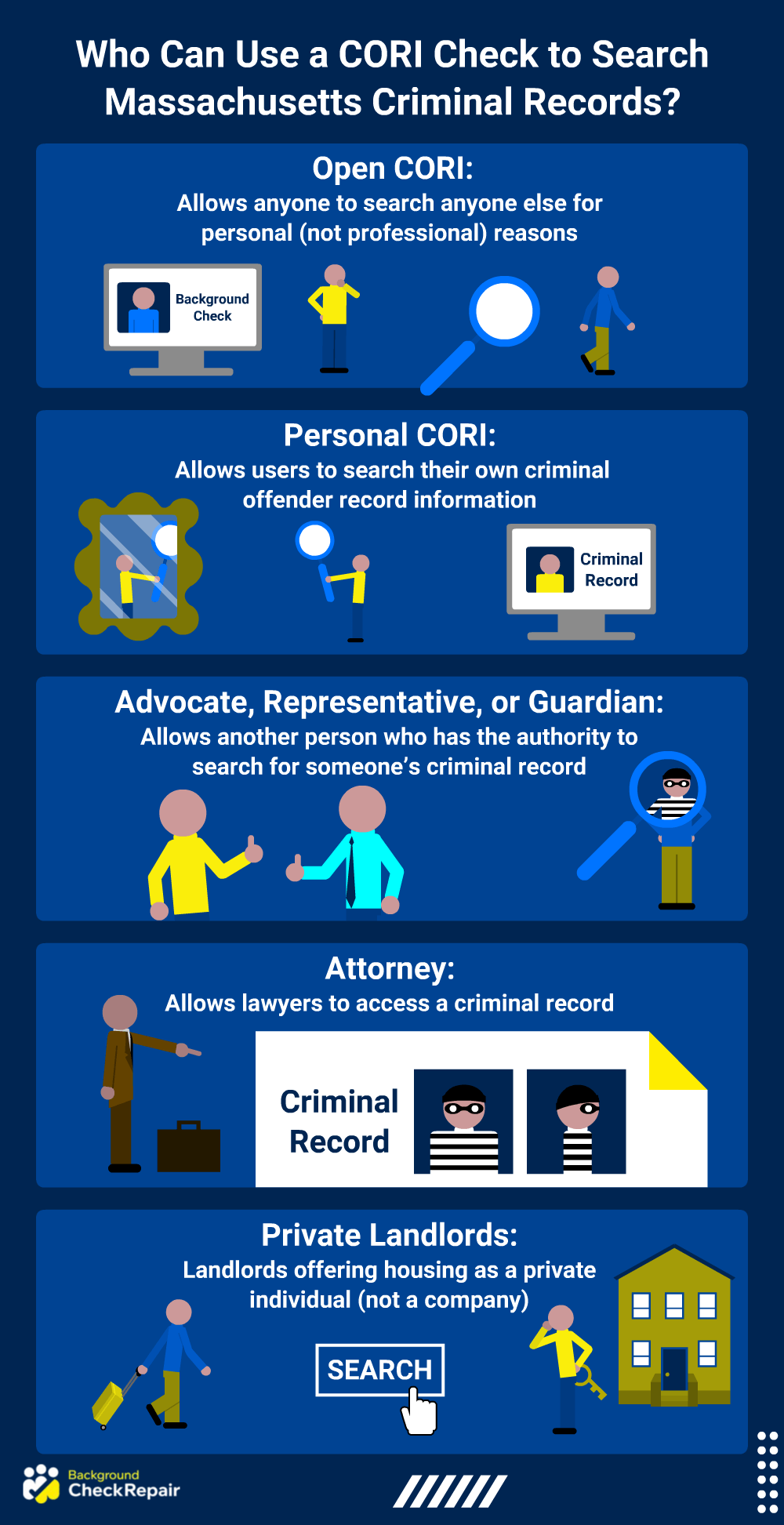
- Open CORI: Allows anyone to search anyone else for personal (not professional) reasons.
- Personal CORI: Allows users to search their own criminal offender record information.
- Advocate, Representative, or Guardian: Allows another person who has the authority to search for someone’s criminal record.
- Attorney: Allows lawyers to access a criminal record.
- Private Landlords: Landlords offer housing as a private individual (not a company).
Each of these individual options includes specific types of information available to search.
What Records Are Available?
When requesting a name-based background check, in Massachusetts using the iCORI service, there are limitations to what information the search will return. The information that a personal search request will return is as follows:3
Open Access: Any member of the general public can pay a fee and access the following records:
- Murder, manslaughter, and or sex offense convictions from any time in the past
- Misdemeanor convictions within the last year
- Felony convictions that occurred within the last two years
- Felony convictions that were punished by 5 years or more in prison, up to 10 years.
Personal Access: Any person may access CORI to check:
- Any adult convictions
- Any adjudication for juvenile crimes processed as an adult
- Any non-conviction
- Any pending cases
- Any civil and non-incarcerable (no jail) offenses
In addition, self audits allow individuals to see who has conducted a CORI check on their records, including organizations. A self-audit includes all CORI requests, from both businesses and law enforcement and other government agencies.
No sealed or juvenile records are shown on CORI requests for individuals.
Landlord Access: Landlords (who don’t conduct more than 5 CORI searches a year) can access:
- Murder, manslaughter, and or sex offense convictions from any time in the past
- Misdemeanor convictions within the last five years
- Felony convictions that were punished by 5 years or more in prison, up to 10 years.
- Any pending charges/offenses.
Employer Access
All employers have access to some basic information on CORI, but certain organizations have “required” access, which provides additional criminal records that go back to the person’s eighteenth birthday.
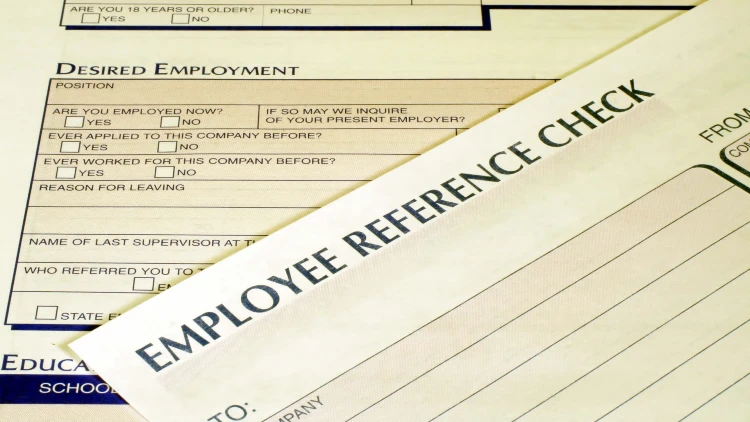
CORI Employment Information:
- Any pending criminal charges, including cases, continued without a finding of guilt (conviction) until the charges are dismissed.
- Any misdemeanor convictions, up to five years from closing or sentence completion.
- Any felony convictions, up to ten years from closing or sentence completion.
- Any conviction for murder, voluntary manslaughter, involuntary manslaughter, or sex
- offenses.
- Information on adjudication as an adult, if the offense occurred while the person was under 18 years old.
CORI Required 1 Access is granted to healthcare organizations, banking, and security system installation services, as well as amusement park operators. Information provided is Required 1 Access includes:
- All felony and misdemeanor offenses from the age of 18.
- Any murder, manslaughter, or sex-related offense.
- All pending criminal charges.
- Any juvenile offenses that were adjudicated when charged as an adult.
CORI Required 2 Access is given to schools, day care centers and other child-related services, as well as religious organizations and eldery care facilities Required 2 Access includes all the access for Required 1, but also includes:
- All non-conviction records
CORI Required 3 Access is only available for camps for children and includes all juvenile criminal records, as well as adults.
CORI Level 4 Required Access is granted only to the Massachusetts Department of Early Education and Care, and includes all the information in each level.
The Department of Criminal Justice Information Services also specifies that both civil and non-incarcerable offenses must appear in distinct sections of the report,4 to differentiate this information from the rest of the report.
Massachusetts background check policy also requires that all organizations keep a policy in place that complies with the CORI guidelines, and specifically details adverse employment actions based on CORI information.5
Massachusetts Fingerprint Supported Criminal Record Check
Fingerprint-supported criminal record checks will check for all arrests and arraignments, even those that occurred outside of the state of Massachusetts. Fingerprint-based checks are usually required to obtain certain licenses from the state.
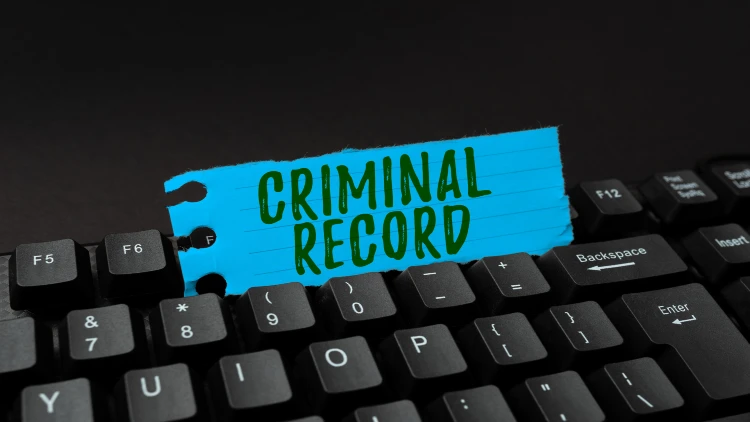
Moreover, certain agencies and organizations must complete fingerprint background checks in Massachusetts for certain employment positions.6 Depending on the agency that makes the request, the information that is returned.
In addition to state results, these fingerprint checks provide nationwide criminal history searches, based on the laws of the state where the offense occurred.
Early Education and Care’s (EEC) Background Record Check (BRC)
The state of Massachusetts requires a special background check process that includes additional checks that are different from traditional employee background checks for those working in early education.7
This particular background check has its own set of disqualifying offenses that will prevent applicants from gaining employment in the early education sector, and it searches both Massachusetts criminal records and national records using a fingerprint, as well as the state Sex Offender Registry Information (SORI) system.
How Far Back Does a Background Check Go in Massachusetts?
Many people are curious about the extent to which background checks can trace history in Massachusetts. Depending on the type of background check being performed, in Massachusetts, history searches can span from seven years to a person’s entire adult life.
How Far Back Does a CORI Check Go In Massachusetts?
Based on the type of search being performed with CORI (either personal or organizational level), the length of time that a background check will examine depends on what is being searched.
In general, personal checks will not exceed 10 years, however, businesses and organizations may access information going back to that subject’s eighteenth birthday, and even before.
Employment Background Check and Records Checks In Massachusetts
In addition to criminal records, the information that is searched on an employment background check in Massachusetts is ultimately decided by the employer that is performing the check. Essentially, what an employer will check for depends on a variety of factors, but these checks must still abide by state and federal laws regarding background checks, for most entry-level positions this will include a basic criminal background check, identity/education verification, and employment history.
Identity & Education Verification
Depending on the job that is being applied for, most applicants can expect that the identity and education information they provided on their application will go through a simple verification process. The government E-Verify and Social Security verification systems can be accessed to check identity and work eligibility, while education verification is generally performed manually.
Criminal Background Check
Certain employers may choose to run a simple name-based check using the CORI system to ensure there are no recent criminal convictions that have occurred in the state.
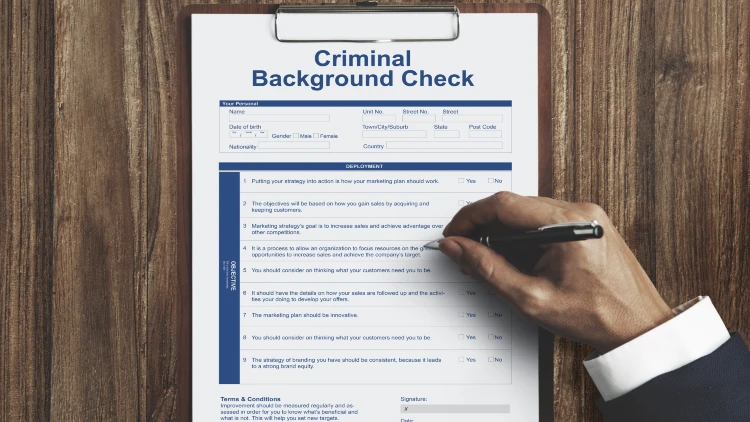
However, other organizations are required to search an applicant’s national criminal records, using a fingerprint process.
Other Official Records (Public and Vital Records Search Massachusetts)
In addition to criminal background checks, education checks, and identity checks, there are also additional public records and vital records available to search in Massachusetts. Many public records can be accessed through the Public Records Request page on the State of Massachusetts website.8
Most personal records are cataloged and provided by the Commonwealth Comptroller’s office, and this office provides online search access for finding public records, which include how to find someone’s middle name, how to find a person’s address, and other public information, like marriage licenses and deed records.
To conduct a search
Step 1. Navigate to the comptroller’s website, and click the link to the search function:10
Step 2. Click the “Make Request” button on the page, or submit a written search request to the Records access officer, listed on the page:
Step 3. Enter the information regarding your request (such as property owner for a certain address, or any business licenses, etc.):
Step 4. Submit the Request.
In addition to this submission, users have access to the comptroller’s office documents on the site that can be manually searched.
To conduct the search, choose “documents” in the upper left of the request page and enter any information that pertains to the request to filter the documents, or examine them one by one.
New records requests should be granted within 10 days of the request itself per Massachusetts state law. If the public record being requested has already been requested it should be available immediately.
To obtain vital records in the state of Massachusetts, Vitalcheck makes it easy to search and request documents. Vitalchek can also be accessed through the state of Massachusetts website.10 Many vital records, like birth certificates, are only available to the owner, to protect individual privacy.
Search Massachusetts Sheriff’s Department for Public and Arrest Records
There are also public records available through the sheriff’s and police departments across each county. Each website is slightly different but most have a drop-down menu with the words ‘public records,’ or ‘public info’.
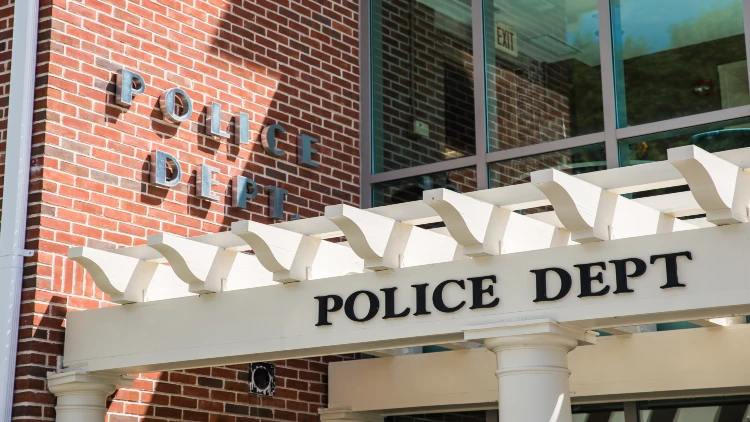
On the following pages, there is information on how to request public records from each sheriff’s department.
| Massachusetts County | Sheriff’s Department Website |
| Barnstable | Barnstable Sheriff Department |
| Berkshire | Berkshire Sheriff Department |
| Bristol | Bristol Sheriff Department |
| Dukes | Dukes Sheriff Department |
| Essex | Essex Sheriff Department |
| Franklin | Franklin Sheriff Department |
| Hampden | Hampden Sheriff Department |
| Hampshire | Hampshire Sheriff Department |
| Middlesex | Middlesex Sheriff Department |
| Nantucket | Nantucket Sheriff Department |
| Norfolk | Norfolk Sheriff Department |
| Plymouth | Plymouth Sheriff Department |
| Suffolk | Suffolk Sheriff Department |
| Worcester | Worcester Sheriff Department |
Any additional records request should be made to the agency that holds the records being requested. In general, the local records custodian will be able to search and obtain public records within their jurisdiction.
In some cases, users can make a request directly to the Public Records Access Officer,11 based on the agency that is in charge of the records being searched.
The Secretary of the Commonwealth also provides a helpful guide for requesting public records that includes a sample template.12
Massachusetts Background Check Laws: Record Check Legal Requirements
Employers in Massachusetts that run background checks on potential employees must abide by state laws when performing these checks on applicants. Some of the laws regarding background checks apply to the entire application process, rather than just the background check itself, which generally occurs later in the process.
Federal Laws
Any business that conducts a background check on employees must follow federal laws regarding background checks. In particular the Fair Credit Reporting Act and the laws enforced by the Equal Employment Opportunity Commission.
The Fair Credit Reporting Act essentially limits the way that background check information can be obtained, in order to protect both the applicant and the business performing the check. In short, this means that a business performing a background check must go through proper and legitimate channels in order to obtain information on their applicants and that information must be used for a specific purpose only.

Laws governing that an applicant gives consent before a business runs a background check on them are covered under this law, as well as guidelines that dictate what companies do with the information obtained during a background check, especially if this information leads to the employee’s employment offer being terminated.
The Equal Opportunity Employment Commission enforces laws regarding workplace discrimination. This ensures that employers are not unfairly denying employment opportunities for characteristics protected under the Civil Rights Act such as ethnicity, religion, and gender.
State Laws
Massachusetts state laws regarding background checks are some of the most complex and detailed in the entire country. These laws apply both to the background check itself and the application process as a whole.
Ban-the-box laws are in effect in the state of Massachusetts,13 making it illegal for employers to request criminal history information on a job application, in order to prevent employers from not offering equal opportunity to those with prior convictions.
Massachusetts also has a seven-year rule regarding criminal history information that can be reported to an employer by a credit reporting agency.
When employment is denied due to information uncovered on a background check, employers must follow specific guidelines regarding how and when the employee is notified.
Employers that run more than 5 background checks in a year in the state must have a written policy that outlines their background check policy for applicants.
Finally, the Massachusetts pay equity act prevents employers from screening employees based on the pay they received at previous employers.14 Specifically, this prevents employers from requesting information on applicants’ salaries from previous employers.
What Is Included In a Criminal Records Check In Massachusetts?
What is included in a criminal record check in Massachusetts depends on the type of check that is being run on the applicant. Although there are some restrictions dictated by state and federal laws, in general, the following information is what applicants can expect to appear on a criminal record check.
- Jurisdiction: Where the offense was recorded
- Case Number: The specific identifier for the offense and arrest record
- Defendant: Basic personal information of the primary individual involved
- Charge: The charge or charges being brought against the defendant
- Filing Date: The date that the charges were filed against the defendant
- Degree of Offense: Whether the defendant is being charged with a felony or misdemeanor.
- Disposition: The current status of the case ( Convicted, Acquitted, etc.)
- Disposition Date: The date that the outcome of the case was determined.
- Sentence: The sentence given to the defendant for the offense.
In some instances, certain records may not show up on a criminal background check. For example, if the defendant was acquitted of the charges or if a misdemeanor was committed more than 5 years ago.
Any arraignments are likely to show up on a background check Massachusetts. This means that pending charges will show up on a CORI report as well as convictions.
Dropped or dismissed charges can sometimes show up on a background check in Massachusetts, but this depends on the job being applied for. Based on the nature of the job, an employer may be required to run a more intensive background check that would include any dismissed or dropped charges in addition to pending charges and those with convictions.
Background check laws in Massachusetts are fairly similar to the rest of the country, with a few extra laws that aim to protect employees and employers alike. In general, when performing a background check, the Massachusetts CORI System and detailed criminal records and public records access tools provide the access both employers and individuals need.
References
1Commonwealth of Massachusetts. (2024). Levels of name-based criminal record check access. Mass.gov. Retrieved May 3, 2024, from <https://www.mass.gov/info-details/levels-of-name-based-criminal-record-check-access>
2Massachusetts Department of Criminal Justice Information Services. (2012). Welcome to the Massachusetts iCORI Service. iCORI. Retrieved May 3, 2024, from <https://icori.chs.state.ma.us/icori/ext/global/landing.action?page=1&m=presentLanding&bod=1714758515960>
3Department of Criminal Justice Information Services. (2024). iCORI General Training For Individuals. Retrieved May 3, 2024, from <https://www.mass.gov/media/4746/download>
4Commonwealth of Massachusetts. (2024). Background Record Checks. Mass.gov. Retrieved May 3, 2024, from <https://www.mass.gov/topics/background-record-checks>
5Department of Criminal Justice Information Services. (2024). iCORI Policy Training For Consumer Reporting Agencies. Retrieved May 3, 2024, from <https://www.mass.gov/files/documents/2017/09/05/iCori%20Consumer%20Reporting%20Agency%20Training.pdf>
6Commonwealth of Massachusetts. (2024). DDS Fingerprint Background Check. Mass.gov. Retrieved May 3, 2024, from <https://www.mass.gov/info-details/dds-fingerprint-background-checks>
7Commonwealth of Massachusetts. (2024). EEC Background Record Checks. Mass.gov. Retrieved May 3, 2024, from <https://www.mass.gov/eec-background-record-checks>
8Commonwealth of Massachusetts. (2024). Public Records Requests. Mass.gov. Retrieved May 3, 2024, from <https://www.mass.gov/topics/public-records-requests>
9Commonwealth of Massachusetts. (2024). Comptroller of the Commonwealth Public Records Requests. Mass.gov. Retrieved May 3, 2024, from <https://www.mass.gov/topics/comptroller-of-the-commonwealth-public-records-requests>
10Commonwealth of Massachusetts. (2024). Ordering a Certificat. Mass.gov. Retrieved May 3, 2024, from <https://www.mass.gov/ordering-a-certificate>
11Commonwealth of Massachusetts. (2024). List of Records Access Officers for Administration and Finance Agencies. Mass.gov. Retrieved May 3, 2024, from <https://www.mass.gov/info-details/list-of-records-access-officers-for-administration-and-finance-agencies>
12Secretary of the Commonwealth Massachusetts. Public Reecords. William Francis Galvin Secretary of the Commonwealth of Massachusetts <https://www.sec.state.ma.us/divisions/public-records/public-records.htm>
13Commonwealth of Massachusetts. (2024). Guide to Criminal Records in Employment and Housin. Mass.gov. Retrieved May 3, 2024, from <https://www.mass.gov/guides/guide-to-criminal-records-in-employment-and-housing#:~:text=Under%20the%20%E2%80%9CBan%20the%20Box,record%20on%20a%20job%20application.>
14Commonwealth of Massachusetts. (2024). Learn more details about the Massachusetts Equal Pay Act. Mass.gov. Retrieved May 3, 2024, from <https://www.mass.gov/info-details/learn-more-details-about-the-massachusetts-equal-pay-act>
